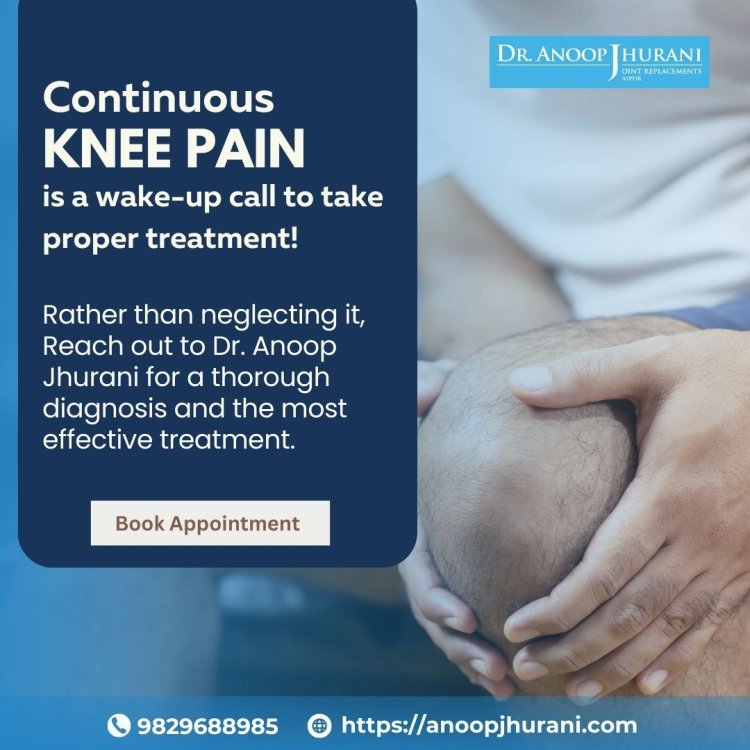All You Need to Know About Partial Knee Replacement
Partial knee replacement surgery, also known as unicompartmental knee arthroplasty, is a procedure aimed at relieving knee pain and restoring function in patients with localized knee joint damage. Partial knee replacement surgery involves replacing only the damaged or arthritic portion of the knee joint with a prosthetic implant, preserving healthy surrounding tissues. This procedure is considered when the damage is limited to one of the three knee compartments: the medial, lateral, or patellofemoral compartment. Do's After Partial Knee Replacement Surgery: • Follow post-operative instructions meticulously: Listen to your surgeon's advice and adhere to prescribed medications and rehabilitation protocols. • Gentle exercises: Begin physical therapy and exercise programs as recommended by your surgeon or physical therapist to regain strength and flexibility. • Maintain a healthy diet: Proper nutrition aids in healing and tissue repair. • Stay hydrated: Drink plenty of water to promote healing and prevent blood clots. • Use assistive devices: Utilize crutches, walkers, or canes as instructed by your healthcare team to prevent falls. Don'ts After Partial Knee Replacement Surgery: • Avoid high-impact activities: Stay away from activities that put excessive stress on the knee joint, such as running or jumping. • Limit bending: Be cautious when bending the knee past recommended angles to prevent implant damage. • High-risk positions: Avoid sitting with your legs crossed or kneeling on the operated knee. • Excessive weight-bearing: Do not put excessive weight on the operated leg without proper guidance. • Rush recovery: Patience is key; avoid pushing yourself too hard too soon. Post-Surgery Care Guide: • Physical therapy: Commit to regular physical therapy sessions to regain strength, balance, and range of motion. • Healthy lifestyle: Maintain a balanced diet and engage in low-impact exercises to support overall health. • Medication management: Follow your prescribed medication regimen and communicate any adverse effects to your healthcare provider. For the Best Partial Knee Replacement Surgery Consult Dr. Anoop Jhurani: Choosing the right surgeon is crucial for a successful partial knee replacement surgery, Dr. Anoop Jhurani is a renowned orthopedic surgeon with expertise in partial knee replacement. Partial knee replacement can offer significant relief to individuals suffering from knee joint damage. Adhering to post-surgery do's and don'ts and following a comprehensive post-surgery care guide are essential for a successful recovery. Consult with a skilled orthopedic surgeon like Dr. Anoop Jhurani to ensure the best possible outcome for your partial knee replacement surgery.
Share this Post to earn Money ( Upto ₹100 per 1000 Views )

Partial knee replacement surgery, also known as unicompartmental knee arthroplasty, is a procedure aimed at relieving knee pain and restoring function in patients with localized knee joint damage. Partial knee replacement surgery involves replacing only the damaged or arthritic portion of the knee joint with a prosthetic implant, preserving healthy surrounding tissues. This procedure is considered when the damage is limited to one of the three knee compartments: the medial, lateral, or patellofemoral compartment.
Do's After Partial Knee Replacement Surgery:
· Follow post-operative instructions meticulously: Listen to your surgeon's advice and adhere to prescribed medications and rehabilitation protocols.
· Gentle exercises: Begin physical therapy and exercise programs as recommended by your surgeon or physical therapist to regain strength and flexibility.
· Maintain a healthy diet: Proper nutrition aids in healing and tissue repair.
· Stay hydrated: Drink plenty of water to promote healing and prevent blood clots.
· Use assistive devices: Utilize crutches, walkers, or canes as instructed by your healthcare team to prevent falls.
Don'ts After Partial Knee Replacement Surgery:
· Avoid high-impact activities: Stay away from activities that put excessive stress on the knee joint, such as running or jumping.
· Limit bending: Be cautious when bending the knee past recommended angles to prevent implant damage.
· High-risk positions: Avoid sitting with your legs crossed or kneeling on the operated knee.
· Excessive weight-bearing: Do not put excessive weight on the operated leg without proper guidance.
· Rush recovery: Patience is key; avoid pushing yourself too hard too soon.
Post-Surgery Care Guide:
· Physical therapy: Commit to regular physical therapy sessions to regain strength, balance, and range of motion.
· Healthy lifestyle: Maintain a balanced diet and engage in low-impact exercises to support overall health.
· Medication management: Follow your prescribed medication regimen and communicate any adverse effects to your healthcare provider.
For the Best Partial Knee Replacement Surgery Consult Dr. Anoop Jhurani:
Choosing the right surgeon is crucial for a successful partial knee replacement surgery, Dr. Anoop Jhurani is a renowned orthopedic surgeon with expertise in partial knee replacement. Partial knee replacement can offer significant relief to individuals suffering from knee joint damage. Adhering to post-surgery do's and don'ts and following a comprehensive post-surgery care guide are essential for a successful recovery. Consult with a skilled orthopedic surgeon like Dr. Anoop Jhurani to ensure the best possible outcome for your partial knee replacement surgery.









